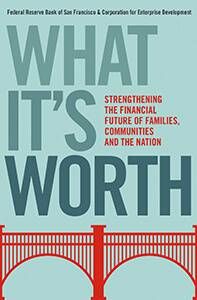How Aging Affects Financial Decision Making
Early warning signs to watch out for concerning your parents
(This article is adapted from a chapter by Ted Beck, president and CEO of the National Endowment for Financial Education — NEFE— in What It's Worth: Strengthening the Financial Future of Families, Communities and the Nation.)
Imagine you are at a restaurant with your parents. Your father, as always, handles the bill, but you notice it is taking longer than usual for him to sign the credit card slip.
A quick peek at the check reveals that he has drastically undertipped (and it’s not just that he is being cheap). Your father has accurately tipped many times before, but this time, he failed to calculate a simple percentage and made an unintentional financial error. Once his back is turned, you quickly drop some cash on the table. But you leave wondering whether there are bigger financial mishaps waiting to happen.
It can be unsettling when you first recognize that a family member is having difficulty with financial tasks where once there was none. But more of us will find ourselves in that position; in just 15 years, one in five Americans will be 65 or older. So it’s in our best interest to understand and address the financial challenges facing older adults.
Here’s how inevitable changes in an aging person’s cognitive skills affect financial decisions and what to do about it:
Aging and Cognitive Function
As we age, the speed at which we generate, transform, and manipulate new information decreases. This type of mental processing is called fluid intelligence, and research has shown that even the healthiest among us has less fluid intelligence as we age. But that is only part of the story.
Crystallized intelligence — the accumulation of knowledge and experience — increases until about age 60, when it plateaus until about age 80 and eventually drops off. Although fluid intelligence might enable you to more quickly calculate a tip on the fly, your father’s crystallized intelligence might help him outperform you when analyzing stock performance and market trends.
Early Warning Signs of Financial Decline
Here are the five early warning signs of financial decline to watch for:
1. Slowness in completing financial tasks
2. Missing key details in financial documents
3. Problems with everyday arithmetic
4. Decreased understanding of financial concepts
5. Trouble identifying risks in investment opportunities
As a society, we cannot afford to delay the conversation about how normal aging affects financial decision making, especially given a tendency for individuals to develop blind spots to their own cognitive decline.
3 Misconceptions About Aging and Money
Merrell Bailey, an Orlando-based attorney specializing in estate planning who serves on the NEFE board of trustees, says there are three common misconceptions among her clients:
- People think they will be healthier than they will be
- They think they have more money than they do
- They think their families will step up and help when needed
Although the third misconception potentially presents the biggest challenge, it also is the best opportunity to avert worst-case scenarios. Many aging adults put off important conversations about their finances despite the desire for their family members to take charge when they become unable. But finding ways to engage family members early on is one of the most significant ways to ensure the overall financial health of aging adults.

It is important to respect the older adult’s independence, emphasizing that discussing contingencies and laying out clear accountabilities is not handing over the keys. It simply enables the family to support the older adult in ways that meet everyone’s needs.
According to NEFE-funded research from Columbia University, increased financial knowledge can help offset the effects of declining fluid intelligence. But knowledge alone is insufficient to strengthen and secure the financial health of older Americans.
Just because a person has lived longer does not inherently mean he or she makes better financial decisions. With their declining fluid intelligence, seniors might make decisions in the moment, such as signing a contract, that are bad decisions.
One of the best ways we can help our aging adults is to anticipate what they want to do and help them do it (or at least help them avoid damaging mistakes) by building in “nudges” and defaults.
For example, going back to the opening example, many restaurants now include suggested tip amounts on the bill. Automating monthly bill pay is another way to limit potential mistakes and to ensure bills are paid on time, in the proper amounts, to the right creditors.
Empowered Financial Decision Making (At Any Age)
People make the best financial choices when they understand the underlying financial concepts, possess the relevant competencies to weigh the risks and rewards of disparate options and have the confidence to choose the right option for them on the basis of their lifestyles and values.
At the same time, we can prepare younger generations to assist their elders and fare well as they age by helping them build their own experiential financial knowledge and store of crystallized financial intelligence.

